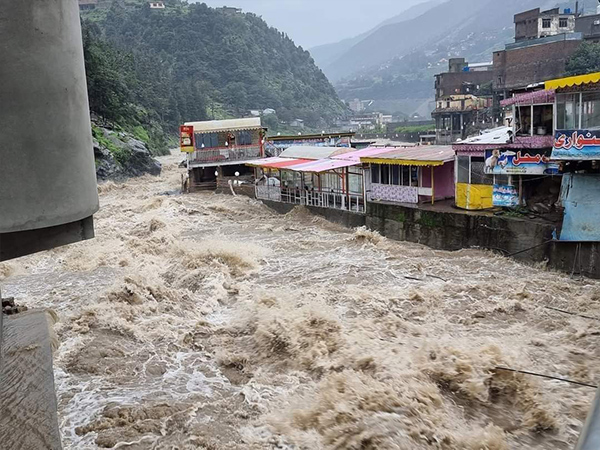The Board of Executive Directors of the World Bank have approved funds totalling $1.692 billion for five projects to assist residents of Pakistan’s Sindh Province who have been affected by floods.
While three of the projects support rehabilitation and housing reconstruction and the restoration of crop production for vulnerable communities, another two projects support health services for mothers and children.
“Sindh was the province worst affected by the 2022 floods, said Najy Benhassine, World Bank Country Director for Pakistan. “There was huge damage to the housing, health, and agriculture sectors and people lost their livelihoods. Beyond the rehabilitation and reconstruction of damaged houses and infrastructure, our engagement in the flood response effort is an opportunity to strengthen resilience, and reform institutions and governance structures”.
The $500 million Sindh Flood Emergency Rehabilitation Project would assist in rebuilding damaged infrastructure, offer short-term employment opportunities, and improve government preparedness for catastrophes. The project will assist in repairing and upgrading vital roadways, water supply systems, irrigation and flood protection infrastructure, as well as other relevant infrastructure.
The restoration and resilient reconstruction of crucial infrastructure would help at least 2 million people—50% of whom are women—in the most flood-affected districts. About 100,000 households will get short-term financial support through a community-level cash-for-work initiative. This will support the livestock restocking for the impacted smallholder livestock farmers and will comprise semi-skilled and unskilled labour.
According to reports, owner-driven and multi-hazard resilient rehabilitation of key housing units will be supported by the Sindh Floods Emergency Housing Reconstruction Project ($500 million). 350,000 housing units will receive funds for renovation and development thanks to a housing subsidy (almost 20 per cent of the total housing rehabilitation needs for Sindh).
For homes with structural damage, cash subsidies will be given to help partially pay for reconstruction or restoration. To increase access to water and sanitation, twin pit latrines and simple rainwater collection systems will also be offered.
The $292 million Sindh Water and Agriculture Transformation Project would boost agricultural water productivity, enhance integrated water resources management, and help farmers who were impacted by floods resume crop production. The project is anticipated to assist more than 385,000 households or over 1.9 million people.
The project would give financial transfers to some 300,000 flood-affected farming households as an urgent response to the flooding in order to aid in the restoration of crop production through the purchase of seeds, fertilizer, and other essential inputs.
In the medium run, better irrigation services and agricultural support will benefit about 70,000 households and help increase farm revenue. The small- and medium-sized farmers targeted by the experimental smart subsidy programs will directly benefit in the amount of $14,000 per household.
The $200 million Sindh Strengthening Social Protection Delivery System Project would improve access to and usage of mother and child health services while also bolstering the province’s social protection delivery system.
In order to support improved maternal and child health outcomes, particularly in the wake of service disruption following the floods, the project supports alignment and connectivity with the Federal National Database Registration Authority and will give conditional cash transfers (CCTs) to 1.3 million mothers and their children.
The CCTs will be made available to Sindh’s bottom 15 districts, chosen based on the Multidimensional Poverty Index (MPI), and will cover 65 per cent of the province’s total flood-affected areas. This will help to lessen the effects of the floods, particularly food insecurity, and allow for the continuation of maternal and child health programs.
This story was adapted from Reliefweb.
